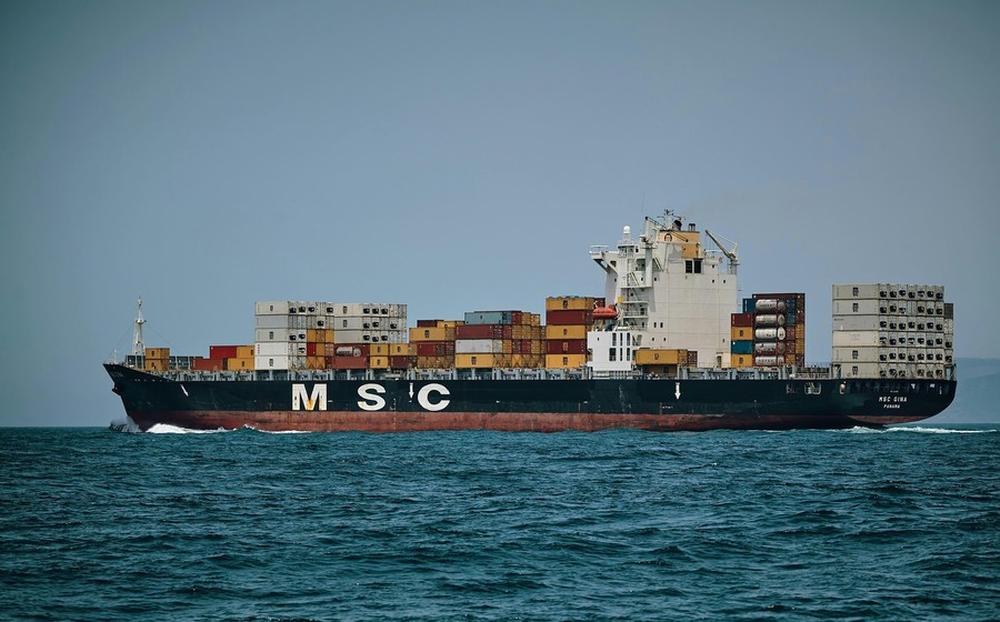
- #China
- #Sanctions & Human Rights
- #Security & Defense
- #US Foreign Policy

▶ "America First" Policy: The Trump administration prioritizes offshore balancing, reshoring efforts, and countering China’s influence in trade, technology, and maritime strategy.
▶ Maritime Security Challenges: U.S. plans to expand maritime capabilities to address vulnerabilities against China’s shipbuilding dominance and Russia-North Korea’s illicit activities.
▶ MSMT's Objectives: The MSMT should leverage advanced technologies and international collaboration to strengthen sanctions enforcement and ensure global maritime security.
Former President Donald Trump has returned to the political forefront with his hallmark “America First” policy. In both foreign and trade arenas, a second Trump administration is expected to adopt a strategy characterized by offshore balancing and selective engagement. This approach emphasizes asserting U.S. interests through strategic partnerships and a targeted projection of power, avoiding overextension. The administration’s focus on reciprocity in trade relations, restructuring global supply chains, and revitalizing domestic manufacturing underscores this strategy.
Key initiatives such as a four-year national reshoring plan and the imposition of a 60% tariff on Chinese products are emblematic of efforts to reassert economic sovereignty and reduce dependency on foreign markets. Concurrently, the administration is likely to maintain bilateral counterbalancing efforts against China, particularly in trade, emerging technologies, and the Taiwan Strait, bolstered by key appointments: Marco Rubio as Secretary of State, Pete Hegseth as Secretary of Defense, and Michael Waltz as National Security Advisor.
Among these prominent “China hawks,” Waltz has drawn attention to a glaring weakness in America’s national maritime strategy in his op-ed published in September 2023. In a document co-authored with Marco Rubio and others in April 2024, he continued to underscore the vulnerability stemming from the United States’ heavy reliance on global maritime trade, juxtaposed with its declining shipbuilding capacity. In stark contrast, China, as the world’s leading shipbuilder, not only controls the fourth-largest global shipping company but also fields the world’s largest navy. This disparity has strategic implications, particularly in maintaining U.S. influence in critical maritime corridors such as the South China Sea. Waltz and Rubio are therefore expected to advocate for a significant expansion of America’s military, civilian, and commercial fleets, framing it as a cornerstone of national security and economic resilience.
Adding to maritime security concerns is the deepening partnership between Russia and North Korea. This collaboration, marked by maritime activities such as arms transfers, illicit oil shipments, and other sanctions-violating exchanges, poses an escalating threat to global security. For over 14 years, North Korea’s sanctions-evasion tactics have been documented by the UN Security Council’s 1718 Committee Panel of Experts, which highlighted practices like ship-to-ship transfers and fraudulent vessel documentation. However, in March 2024, Russia vetoed the renewal of the Panel of Experts, signaling not only a protective stance toward North Korea but also a deeper alignment through military and logistical cooperation, evidenced by recent transfers of arms, personnel, and energy resources. This veto undermines multilateral efforts to curb North Korea’s illicit activities and reflects a strategic commitment to bolstering the DPRK’s defiance of international norms.
In response, the Multilateral Sanctions Monitoring Team (MSMT) has been established to counter violations and evasions of UN sanctions. According to the U.S. Embassy in South Korea, the MSMT will focus on issuing reports on North Korea’s malicious cyber activities and maritime sanctions evasion. The MSMT is designed to fill the vacuum left by the defunct UN monitoring panel, with a mandate to provide timely and actionable insights to the international community.
The MSMT comprises 11 participating states: Australia, Canada, France, Germany, Italy, Japan, the Netherlands, New Zealand, South Korea, the United Kingdom, and the United States. Notably, 10 of these states are also members of the Pacific Security Maritime Exchange (PSMX), a coalition established in 2018 and expanded in 2023 with the inclusion of Italy. The PSMX focuses on preventing sanctions evasion by identifying smuggling vessels, increasing the costs of such evasion, and dismantling black market networks supporting North Korea. The overlapping membership between the MSMT and PSMX presents an opportunity for synergy, particularly in leveraging shared intelligence frameworks and operational protocols to enhance sanctions enforcement.
Despite its potential, the MSMT faces legitimacy challenges, particularly from North Korea, which has criticized the initiative as unlawful and illegitimate for excluding China and Russia—both permanent members of the UN Security Council. The Trump administration’s confrontational stance toward these powers is unlikely to bridge this divide. To counter such criticisms, the MSMT could expand its membership to include additional UN member states or adopt measures to enhance transparency and accountability, such as publishing irrefutable evidence to strengthen international support.
Therefore, central to the MSMT’s success will be the adoption of evidence-driven reporting, moving beyond traditional intelligence-based monitoring to a data-centric and technology-integrated approach. Emerging technologies offer transformative potential: satellite imagery can detect environmental anomalies like nitrogen dioxide emissions or analyze nighttime lighting patterns to identify suspicious maritime activities. Additionally, AI-driven vessel tracking systems, autonomous drones, and big data analytics for pattern recognition in shipping routes could significantly enhance monitoring capabilities. Participating states could also contribute by monitoring their respective maritime jurisdictions, creating a comprehensive oversight network.
Beyond monitoring, the MSMT can strengthen sanctions enforcement by integrating with the Proliferation Security Initiative (PSI). The PSI, which includes interdiction exercises across maritime, air, and ground domains, as well as Tabletop Exercises (TTX) for government officials, has traditionally relied on voluntary implementation by participating states. By establishing standardized protocols for addressing illicit activities uncovered during PSI operations, the MSMT could set a precedent for more robust enforcement measures within domestic jurisdictions. Collaborating with private-sector stakeholders, such as shipping companies and insurance providers, could further enhance compliance and effectiveness.
The MSMT’s key functions are expected to include compliance monitoring, investigative operations, advisory support, reporting, and coordination. To achieve its objectives, the team will require expertise spanning legal, financial, technical, and defense domains, with specialists dedicated to navigating the complexities of sanctions enforcement and maritime security. The team will need to expand its human resource structure beyond the eight-member UN panel that preceded it.
In alignment with the “America First” policy and the selective engagement doctrine, a second Trump administration may prioritize ending the Russia-Ukraine conflict while maintaining a prolonged strategic rivalry with China. This dual-track approach reflects a recalibration of U.S. global priorities, with initiatives like the MSMT serving as vital tools to uphold multilateral sanctions and counter emerging threats. As the geopolitical landscape becomes increasingly contested, sustained cooperation and the strategic integration of emerging technologies will be essential to ensuring maritime security and global stability.

Dr. In Joo Yoon is a Research Fellow in the Ocean Economy Strategy Department at the Korea Maritime Institute (KMI). Her research interests include the maritime industry, inter-Korean cooperation in maritime issues, and the North Korean economy, society, tourism, and transition. She obtained her Ph.D. from Korea University, majoring in North Korean Studies. She also served as a Visiting Scholar at the East-West Center from April 2023 to October 2023 and the Center for Korean Studies at the University of Hawaii from October 2023 to April 2024.